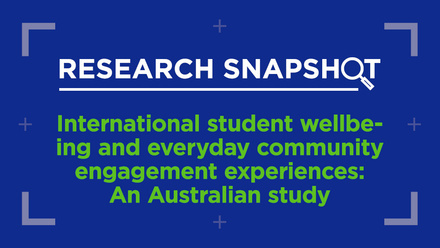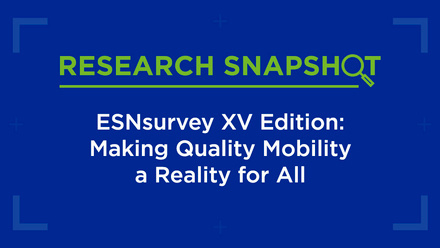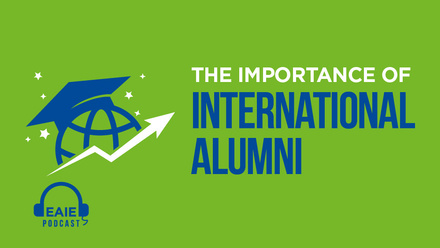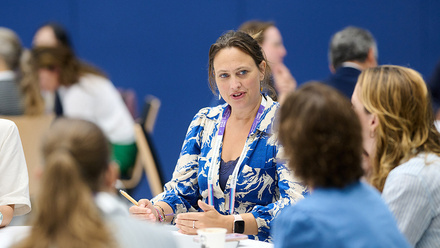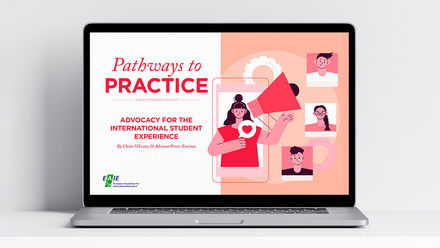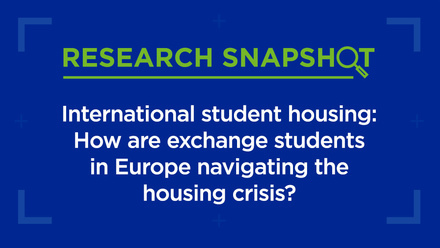Unleashing entrepreneurial potential: practical assessment strategies for international students
The 2024 EAIE Conference and Exhibition in Toulouse, France, provided a vibrant platform for sharing innovative practices in international higher education. Research conducted at Wittenborg University of Applied Sciences in the Netherlands formed the basis for a poster session titled ‘Developing the entrepreneurship of international students through continuous and comprehensive assessments’. One of the main targets of this poster was to generate conversations about effective strategies for nurturing entrepreneurial competencies in diverse student populations and to offer practical suggestions for educators seeking to enhance their international entrepreneurship programmes.
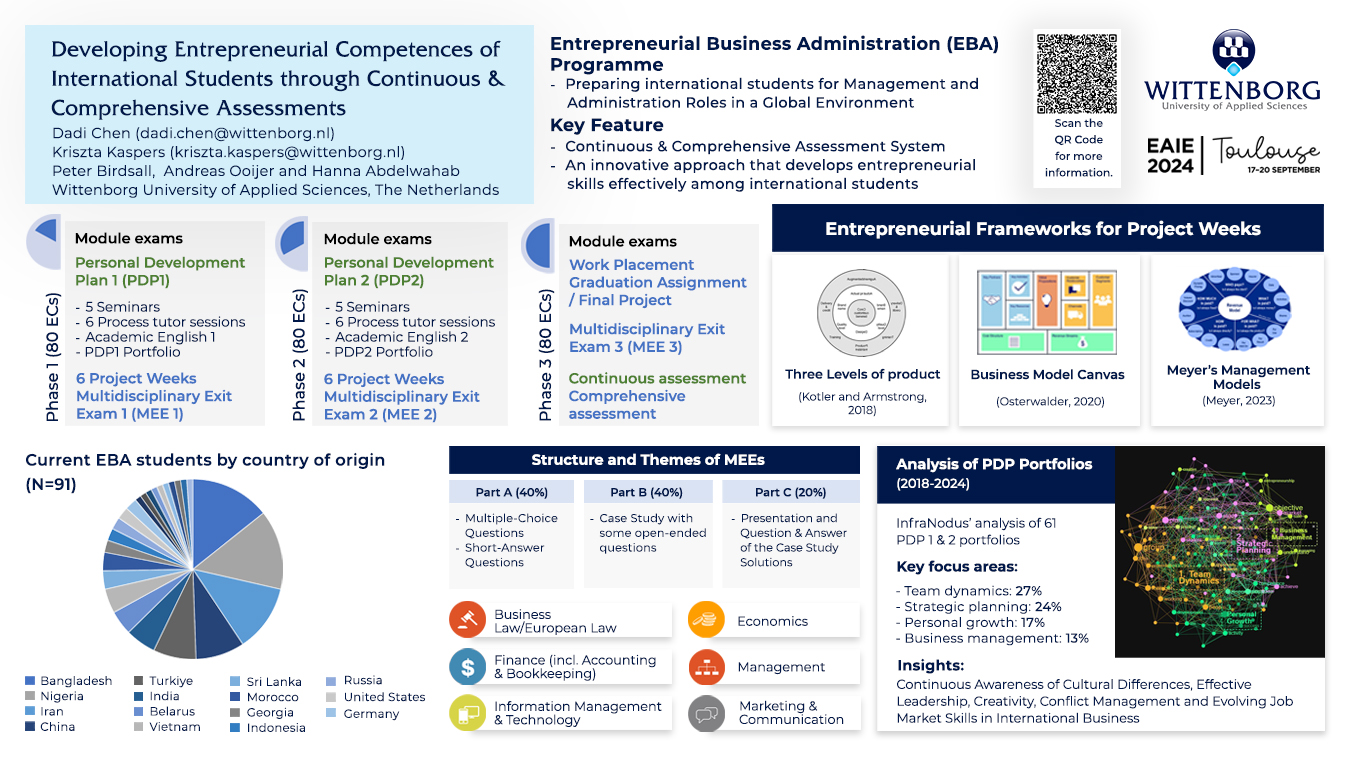
The challenge: assessing entrepreneurship holistically
Traditional assessment methods often fall short when capturing the dynamic and multifaceted nature of entrepreneurship. International students, in particular, bring diverse backgrounds, experiences and learning styles to the classroom, requiring assessment approaches that are both inclusive and comprehensive. Wittenborg, as the most international higher education institute in the Netherlands with more than 95% of its students from more than 100 nationalities, conducted research which included a review of the internal assessment system and bibliometric analysis of 61 students’ Personal Development Plan (PDP) portfolios collected between 2018 and 2024. The project addresses the challenge of traditional assessment methods falling short by advocating for continuous and integrated assessment strategies that track student progress and evaluate a range of competencies, from idea generation and business planning to communication and teamwork.
Our approach: continuous and comprehensive assessment
Our poster showcased a framework for continuous and comprehensive assessment, incorporating several key elements:
- PDP portfolios: Personal Development Plan (PDP) portfolios provide a structured platform for students to reflect on their learning journey, document their entrepreneurial experiences, and set personal goals. This ongoing process of self-assessment fosters metacognition and empowers students to take ownership of their development.
- Project weeks: Intensive, week-long project-based learning experiences immerse students in real-world scenarios, challenging them to apply their entrepreneurial knowledge and skills to develop innovative solutions. These projects provide valuable opportunities for formative assessment, allowing instructors to provide feedback and guidance throughout the process.
- Multidisciplinary Exit Exams (MEEs): Comprehensive exit exams, incorporating multidisciplinary perspectives, assess students’ overall understanding of entrepreneurship and their ability to integrate knowledge from different fields. These exams can include tests on knowledge, problem-solving tactics, and presentation skills, providing multiple ways for students to showcase their achievements.
Practical takeaways for educators
Here are some practical suggestions for international entrepreneurship programmes:
- Embrace formative assessment: Move beyond summative assessments and integrate formative assessment strategies throughout your programme. Provide regular feedback to students on their progress, encouraging self-reflection and continuous improvement as in real workplaces.
- Integrate experiential learning: Create opportunities for students to engage in experiential learning activities, such as simulations, case studies, and real-world projects. These experiences provide valuable context for learning and allow students to develop practical skills.
- Foster collaboration and teamwork: Entrepreneurship is rarely a solo endeavour. Design activities that encourage cooperation and teamwork, allowing students to learn from each other and develop essential interpersonal skills in intercultural communication.
- Personalise the learning journey: Recognise that international students come from diverse backgrounds and have different learning styles. Encourage students to learn from each other. Offer personalised learning opportunities and provide support tailored to individual needs.
- Connect with the real world: Invite guest speakers from the business community, organise field trips to local businesses, and encourage students to participate in entrepreneurship competitions. These connections provide valuable insights into the real world of entrepreneurship and enhance students’ confidence in facing real-world challenges.
This research highlights the importance of continuous and comprehensive assessment in fostering entrepreneurial skills in international students. Educators can empower international students to unleash their entrepreneurial potential and thrive in a globalised world by adopting such strategies.

